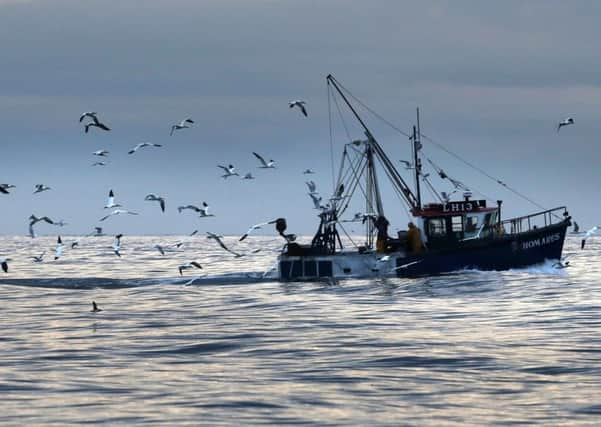Holly Lynch: Fighting for a better Brexit deal for our fishermen


The Government relentlessly told the fishing sector, and the country, that we would be taking back control of our waters, and leaving the EU’s Common Fisheries Policy (CFP) from day one of leaving the EU.
They told us that unwaveringly, right up until they broke the news that instead we would be staying in the CFP for a transition period, but without any say whatsoever, for up to two years.
Advertisement
Hide AdAdvertisement
Hide AdThe sector is now looking anxiously to the Government’s imminent White Paper which will pave the way for the Fisheries Bill later this year.
Leaked versions are filling the fishing industry with doubt that the White Paper will be far from the bold vision for the future that the sector was promised by the Government.
It is clear that there are a number of issues which must be tackled if we are to create a secure future for our fishing sector. The most important of these is the reallocation of quota so that it benefits coastal communities and the small-scale fleet.
Despite making up the majority of the British fishing fleet, at present smaller boats have just four per cent of the total quota. These are the boats that provide jobs in many small fishing ports across the country, often run by families who have been fishing the local waters for generations.
Advertisement
Hide AdAdvertisement
Hide AdThe Government has responsibility for deciding how to share out Britain’s share of fishing quota to our fleet and it has presided over a system that has rewarded huge commercial boats.
For example, one Dutch-owned trawler, the Cornelis Vrolijk, controls more than a fifth of England’s entire quota allocation, and about two-thirds of the UK’s quota is awarded to three multi-national companies.
The Government has an opportunity to put the smaller-scale fleet first. This is why it’s so concerning that the leaked draft of the White Paper makes no proposals to do this, leaving the quota system largely untouched. The Government already has powers to make these changes and so any future policy must consider how new and existing quota can be more fairly distributed.
Many boats rely on skilled migrant labour and could be disadvantaged by a sudden tightening of immigration rules. There is also nothing in the White Paper regarding education for the next generation of fishermen and women, which is a major problem in an industry where many boats have no crew member under the age of 40.
Advertisement
Hide AdAdvertisement
Hide AdIf we are to capitalise on an uplift in quota post-Brexit, then the Government needs to set out exactly how it will avoid staff shortages which would lead to an economic hit for understaffed boats and potentially put fishers at risk if boats head out to sea without the right numbers.
The number of people working on the fishing fleets here in Yorkshire and the Humber has reduced dramatically since 2011 – by almost 30 per cent. There is a worrying downward trend year after year.
Grimsby and Scarborough have both seen a significant reduction. Scarborough had 487 fishermen in 2011 but that had fallen to 316 by 2016, a reduction of 35 per cent. Scarborough has seen a significant rise in the number of part-time fishermen over that period. In 2011 there were 434 fishermen in Grimsby but by 2016 that figure had fallen by almost a quarter to 333.
Michael Gove’s rhetoric on fishing has been clear and unwavering throughout – and beyond the referendum – that we would take back absolute control of our waters yet his words have proven to be entirely void of substance. We are currently in the worst or all worlds, locked into the CFP but with no say and with no vision for a thriving fishing sector beyond that.
Holly Lynch is Shadow Minister for Flooding and Coastal Communities and the Labour MP for Halifax.